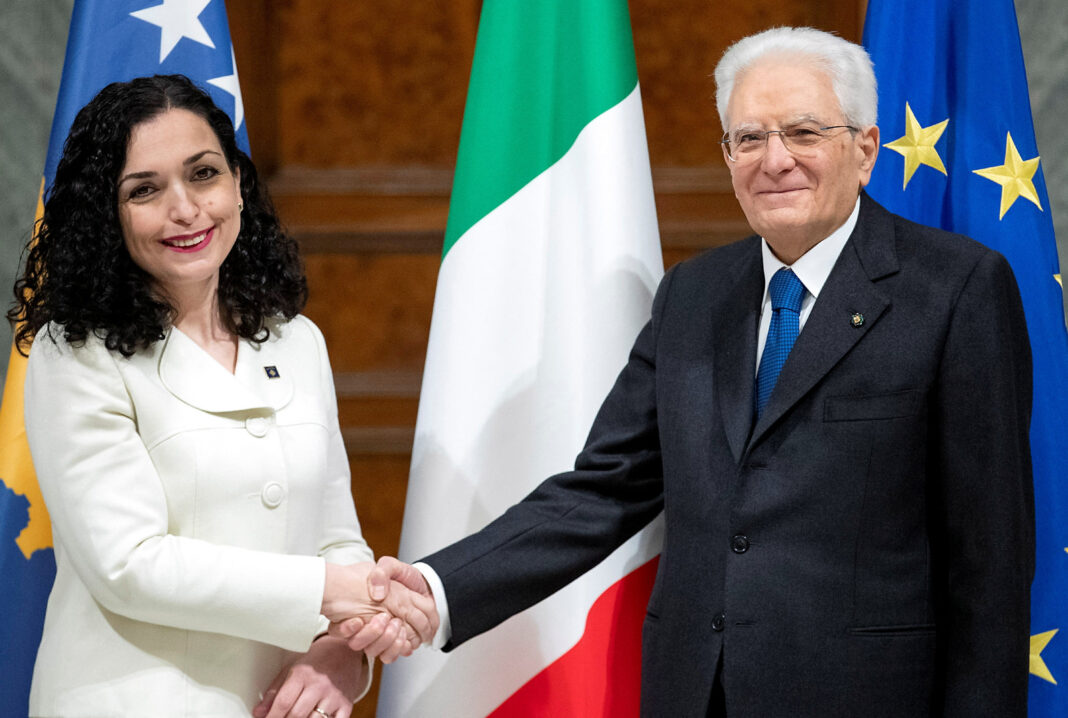At the end of 2022, tensions between Kosovo and Serbia started sparking up again, as the Serbian president, Aleksander Vucic, deployed troops on the border with Kosovo, claiming they were prepared to fight.
The announcement was met by the prompt response of the Serbians living in Kosovo, as road blockades were set up in Mitrovica, a Serbian majority city in the Northern part of the country.
Kosovo is located in a mountainous zone in the South of Serbia, and it is considered to be the cradle of the Serbian culture and civilization. However, out of 1.8 million people living in the country, only 6% of the population is Serb, with the majority of the population being Albanians but including also minorities of Bosnian, Turk and Roma ethnicity. For a long time, its history was intertwined with the one of Serbia. For instance, it was part of the Yugoslavian union, which under general Tito’s leadership was able to unite all ethnicities for the sake of “brotherhood and unity”.
When Tito died in 1980, it was soon clear that the federation was not going to last long, as it was under his leadership that it had been able to function. As the country entered its crisis, the first protests started to spark up. In particular, the Serbs claimed that the general had tried to keep the country weak, in particular with his 1974 constitution which had granted independence to Kosovo.
The Yugoslavian war
The bloody Yugoslavian war started in 1991 in Slovenia, but eventually expanded towards the whole country, leading to a destructive war that would last for about ten years. It was looked at with worry and fear from the International Community and there were several efforts from both the EU and the UN to intervene to stop the conflict and help in the reconstruction. Interestingly, the resolution 1244 from the Security Council, which was issued to help appease the conflict, claims that Serbia was to have sovereignty over the region of Kosovo.
Nevertheless, the strive for independence was not silenced, which is why the 17th February 2008 Pristina’s parliament unilaterally declared Kosovo’s independence. Since then, some efforts were made, especially with the mediation of the EU, to promote peaceful and fruitful relationships between the two countries. In 2013, with the Bruxelles agreements, the two countries started a process of normalization of the relationships, which included the dismantlement of all parallel structures, the integration of Serbs in Kosovar institutions and the establishment of a Kosovo police force.
EU’s role
Today, 99 out of 193 of the United Nations countries have recognized it, including most of the EU States. The nation is however still not acknowledged by some powerful players in the international scenario, including Russia and China. This lack of recognition has therefore blocked Kosovo from entering the United Nations, thus excluding it from the possibility of participating in the global geopolitical act.
For years, the two countries have been holding on to a fragile equilibrium, which now seems to be endangered by Vucic’s sudden display of force. However, a military confrontation seems unlikely, due to the delicate political climate in which the tensions have arose. Moreover, the presence of NATO contingents in the country should be enough to avert a full-blown conflict, but at the risk of holding on to a permanent status of tensions and potential escalations. In this delicate scenario, it could be up to the EU to take on a role as a guide and mediator, to further communications between the two countries and improve the nation building as well as institutional design, in order to soothe both parties and avoid intensifications of the conflict that would increase pressures and risks in the area.
The announcement was met by the prompt response of the Serbians living in Kosovo, as road blockades were set up in Mitrovica, a Serbian majority city in the Northern part of the country.
Kosovo is located in a mountainous zone in the South of Serbia, and it is considered to be the cradle of the Serbian culture and civilization. However, out of 1.8 million people living in the country, only 6% of the population is Serb, with the majority of the population being Albanians but including also minorities of Bosnian, Turk and Roma ethnicity. For a long time, its history was intertwined with the one of Serbia. For instance, it was part of the Yugoslavian union, which under general Tito’s leadership was able to unite all ethnicities for the sake of “brotherhood and unity”.





